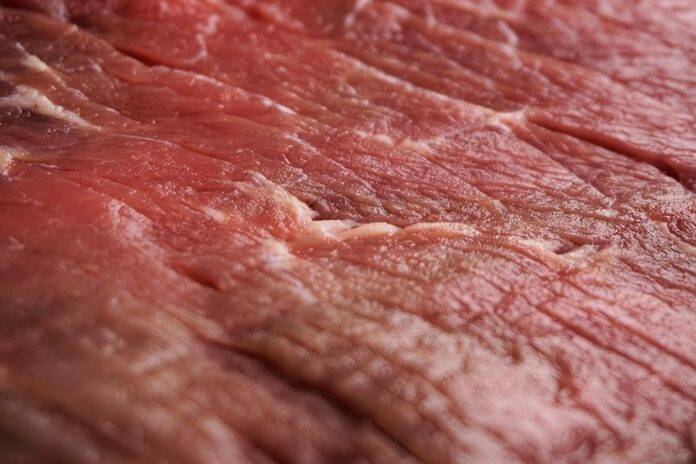Introduction
The lab-grown meat industry has been gaining traction in recent years as a sustainable and ethical alternative to traditional animal agriculture. However, like any industry, it is subject to government regulations that can affect its growth and development. In this report, we will explore the top 10 government regulations affecting the lab-grown meat industry and their implications.
1. Food Safety Regulations
One of the most critical regulations affecting the lab-grown meat industry is food safety regulations. Lab-grown meat is a relatively new technology, and there are concerns about its safety for human consumption. Government agencies such as the FDA and USDA have the authority to regulate the production and sale of lab-grown meat to ensure it meets safety standards.
Example:
In 2018, the FDA and USDA announced a joint regulatory framework for lab-grown meat. This framework outlines the safety and labeling requirements for lab-grown meat products to ensure they are safe for consumers.
2. Labeling Regulations
Labeling regulations are another important aspect of government oversight in the lab-grown meat industry. Consumers have the right to know what they are eating and where it comes from. Labeling regulations ensure that lab-grown meat products are accurately labeled to prevent consumer confusion.
Example:
In the European Union, lab-grown meat products must be labeled as “cultured meat” or “cultivated meat” to distinguish them from traditional meat products. This labeling requirement helps consumers make informed choices about the products they purchase.
3. Environmental Regulations
Environmental regulations play a significant role in the lab-grown meat industry due to its potential to reduce greenhouse gas emissions and land use compared to traditional animal agriculture. Government agencies may impose regulations to ensure that lab-grown meat production is environmentally sustainable.
Example:
In the United States, the Environmental Protection Agency (EPA) sets regulations on greenhouse gas emissions from livestock production. Lab-grown meat companies may be subject to similar regulations to ensure they are contributing to environmental sustainability.
4. Import and Export Regulations
Import and export regulations can also impact the lab-grown meat industry, especially for companies looking to expand their market internationally. Government agencies may impose restrictions on the import and export of lab-grown meat products to protect domestic industries.
Example:
In China, lab-grown meat companies face strict regulations on importing their products due to concerns about food safety and competition with domestic meat producers. These regulations can hinder the growth of the lab-grown meat industry in the Chinese market.
5. Intellectual Property Regulations
Intellectual property regulations are crucial for protecting the innovations and technologies developed by lab-grown meat companies. Patents and trademarks can provide legal protection against competitors who may try to replicate or steal proprietary processes.
Example:
Beyond Meat, a leading plant-based meat company, has filed multiple patents for its innovative meat alternatives. These patents help protect the company’s intellectual property and prevent others from copying their products.
6. Animal Welfare Regulations
Animal welfare regulations are essential for ensuring the ethical treatment of animals in the lab-grown meat industry. While lab-grown meat eliminates the need for traditional animal agriculture, there are still concerns about the welfare of cells used in the production process.
Example:
The Good Food Institute, a non-profit organization, works to promote the development of sustainable and ethical alternatives to traditional animal agriculture. They advocate for regulations that prioritize animal welfare in the production of lab-grown meat.
7. Trade Regulations
Trade regulations can also impact the lab-grown meat industry, especially for companies looking to export their products to international markets. Tariffs, quotas, and trade agreements can affect the cost and availability of lab-grown meat products in foreign countries.
Example:
The United States-Mexico-Canada Agreement (USMCA) includes provisions for trade in agricultural products, including meat. Lab-grown meat companies may benefit from reduced trade barriers under this agreement when exporting to Canada and Mexico.
8. Health and Nutrition Regulations
Health and nutrition regulations are important for ensuring that lab-grown meat products are safe and nutritious for consumers. Government agencies may set standards for the composition and nutritional content of lab-grown meat to protect public health.
Example:
The FDA regulates the labeling and marketing of food products to ensure they are safe and accurately represented to consumers. Lab-grown meat companies must comply with these regulations to sell their products in the market.
9. Labor Regulations
Labor regulations can also impact the lab-grown meat industry, especially for companies involved in research, development, and production. Workplace safety, wages, and labor rights are important considerations for ensuring a fair and ethical work environment.
Example:
Labor unions may advocate for regulations that protect the rights of workers in the lab-grown meat industry. Companies must comply with labor laws to ensure their employees are treated fairly and equitably.
10. Investment Regulations
Investment regulations can affect the growth and development of the lab-grown meat industry by determining the availability of funding and resources for companies. Government policies on investment and venture capital can impact the ability of lab-grown meat startups to attract investors.
Example:
Countries like Singapore and Israel have implemented policies to support the development of alternative protein industries, including lab-grown meat. These policies include grants, tax incentives, and research funding to encourage innovation in the sector.
Conclusion
In conclusion, government regulations play a crucial role in shaping the growth and development of the lab-grown meat industry. From food safety and labeling to environmental sustainability and animal welfare, regulations help ensure that lab-grown meat products meet high standards of quality and ethics. Companies in the industry must navigate these regulations to succeed in a rapidly evolving market landscape.



